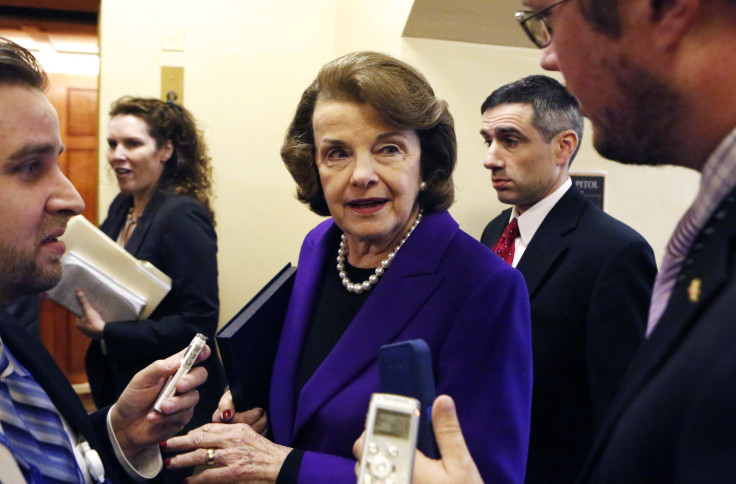CIA Torture Report Redacted Mentions Of UK Intelligence Agencies

Mentions of British intelligence agencies were removed from the U.S. Senate’s blockbuster report on the CIA’s employment of torture and brutal interrogation tactics in the wake of the Sept. 11, 2001 attacks, a spokesman for U.K. Prime Minister David Cameron said Thursday, the Guardian reported. The references were deleted at the request of the agencies, the spokesman said, a fact that goes against earlier statements by the U.K. government that any redactions came about due to “national security” concerns, according to the Guardian.
After it was released Tuesday, critics almost immediately slammed the report as having been redacted in a manner that protected international partners from being implicated in torture in cooperation with the CIA.
Those assertions appeared to get a boost by the admission by the Cameron administration, which initially stated via a spokesman that as for requests that text be deleted, there had been “none whatsoever, to my knowledge” in advance of the report’s release. That statement is not consistent with the statement by Cameron’s deputy official spokesman on Thursday, as reported by the Guardian:
“My understanding is that no redactions were sought to remove any suggestion that there was U.K. involvement in any alleged torture or rendition. But I think there was a conversation with the agencies and their U.S. counterparts on the executive summary. Any redactions sought there would have been on national security grounds in the way we might have done with any other report.”
The redactions were requested during meetings between British diplomats and members of the U.S. Congress before the report was released, according to USA Today. The requests were honored because the British government acted on a protocol that requires allies to protect each other’s secret information if so asked, according to the Independent.
The response to the new admission that there were in fact redactions requested by the British intelligence apparatus was swift. Andrew Tyrie, a Conservative MP and founder of the All Party Group on Extraordinary Rendition, called for an investigation into any U.K. involvement in torture:
“The Senate’s report, and the further reports of redactions, greatly strengthen the case for a full and detailed inquiry into allegations of British facilitation of kidnap and torture, led by a judge," Tyrie told the Telegraph. “The ISC has been handed back this task. Given the difficulties they faced in 2007, that is a huge challenge. Until that work is completed, until the scope and limits of our involvement are known, allegations -- whether true or not -- will continue to be made, corroding public confidence. We cannot know what, if any, of the material redacted might be of legitimate public concern. Until a full inquiry is completed, it will continue to be claimed that some of it is.”
The 499-page Senate report details extensive use of brutal interrogation techniques -- many of which is widely viewed to amount to torture -- at the U.S.’ international network of detention facilities in the years following 9/11.
But the report does not include references to known British intelligence involvement in detention and interrogation activities during that period. It does not mention the MI5 or MI6 agencies or Diego Garcia, a British island in the Indian Ocean that was used to stage rendition flights for the CIA, according to statements by former foreign secretary David Miliband in 2008, according to USA Today.
It also does not mention that intelligence officers interviewed British citizens imprisoned in Pakistan who had prominent, fresh scars from torture, according to a 2009 Human Rights Watch report referenced by USA Today.
© Copyright IBTimes 2025. All rights reserved.




















